I am a blind masseur, and every time I meet a young woman with perfume on her body, I can’t help but feel impulse and want to masturbate. Am I sick? ]
[I am a hearing impaired person. I am afraid of having sex with my boyfriend. I am afraid that my voice is too bad and scares him.]
[I was paraplegic due to an accident, and I was especially afraid that my husband would leave me one day, because I might not have sexual ability…]
Since entering the field of [disability and sex] in 2011, Cai Cong has heard similar questions countless times.
Too many people feel that everything related to sex, the disabled group is naturally excluded. They have no sexual needs and should not have sex.
Even the disabled themselves cannot get rid of such prejudice, doubt themselves, have no confidence, and subconsciously hide their needs and desires.
Cai Cong is a visually impaired person. In 2013, he founded the magazine “People >”, a reading material for the Chinese disabled group, which set up a column called “Sex Interest” to answer the puzzles of the disabled about [sex].

Over the past few years, Cai Cong has made speeches, held workshops and funded public welfare projects everywhere. He just wants to tell you one thing-
There is no what difference between disabled people and able-bodied people in [sex].
No one can resist natural desires.
Like many people, Cai Cong’s sexual enlightenment began in junior high school biology.
Cai Cong’s visual impairment stems from optic atrophy caused by drug-induced glaucoma as a child. Before college, he had been attending ordinary schools and did not feel that he was different from others in what.
Until the biology class learned the chapter [reproductive system]. The teacher said, self-study. Other students can turn over the textbook by themselves, but Cai Cong can’t see it and is embarrassed to ask others for help.
It was the first time he felt the difference brought about by disability-in [sex].
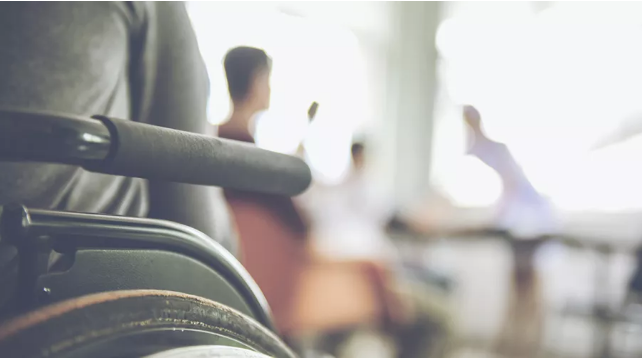
In high school, the male students around began to get together, rent novels, watch movies and share secrets about [sex]. Cai Cong still could not see, was excluded from small groups, and was out of place, but became more and more curious about all this.
He bought books online and took them to his class. He asked his classmates to help him read them and listen to them himself. This pamphlet, which answers young people’s sexual perplexity, helped him open up the circle of his classmates.
Originally, just a few students hid behind the classroom and read secretly. Gradually, more and more people leaned in and found it interesting. Cai Cong realized that [everyone’s curiosity about sex is actually common.]
During that time, the discussion on sex was free and open. Everyone regarded it as a fun thing and no longer felt ashamed and did not dare to talk about it as before.
It was also at that time that Cai Cong came into contact with the sociology of sex through the Kinsey Sex Report.
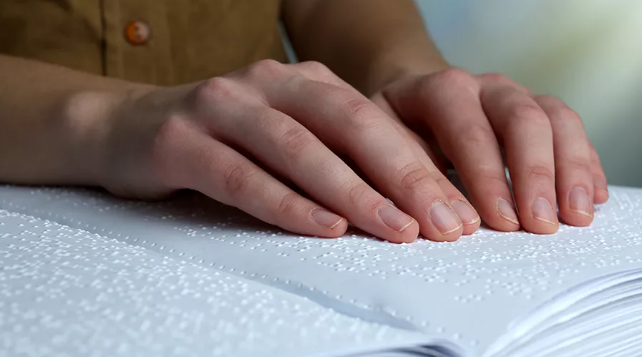
Photo Source: Station Cool Hailuo Creative
But when I got to the university, the situation changed. Due to visual impairment, Cai Cong could only take a single examination and went to a special education college specially aimed at the blind, majoring in massage.
In the first semester, there was a class on human anatomy. In the chapter on reproductive system, the students all rubbed their hands and waited for the teacher to speak. But the first thing the teacher said when he came in was that this chapter would not be discussed.
Cai Cong was unconvinced and asked him, “We are all adults, why not?” ]
The teacher replied, “You won’t need it in the future anyway.”
The incident deeply touched Cai Cong. The illusion of seemingly [harmony] in high school was broken in an instant: the problems faced by the disabled and the isolation between disability and sex are actually everywhere.
Clearly, it is a systematic knowledge that should be learned. Why is there a lack of some? Why don’t we talk about what other schools are talking about?
The reason is obvious: the students in the classroom are all visually impaired. They cannot see, so they do not need it.
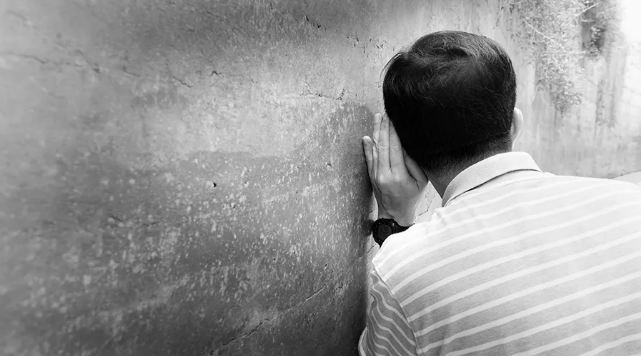
But no one can resist the natural desire.
When I was in college, several students with hearing impairment lived in Cai Cong’s dormitory building. Close the door and draw the curtains. Deaf people can easily get rid of the interference from the outside world and enter their private world. However, blind people have weak eyesight and good ears and run to the door to eavesdrop.
At a time when education and guidance were lacking and [the sexual needs of the disabled] were kept secret, this was their instinctive exploration and pursuit.
At that time, Cai Cong just silently buried this incomprehension in his heart. After graduation, he did not do massage like most blind people, but chose to take the road of public welfare, did disability-related work, and began to drum up and shout for the sexual rights of the disabled.
[Take it off, take it off]
After graduating from college, Cai Cong applied for an intern in the One Plus One Disabled Public Welfare Group. He received such a test:
If < < If You Are the One > > were to hold a special blind date for the disabled, how would you evaluate the matter?
Cai Cong made a crackling criticism: Since it is a blind date, anyone can come, why do you have to have a special performance for the disabled? Can the disabled only be with the disabled?
However, it was only after the actual work that he discovered that, not to mention treating the disabled and ordinary people equally, in the field of [sexual and reproductive health], it takes great efforts to pay attention to the disabled and carry them out of the curtain.
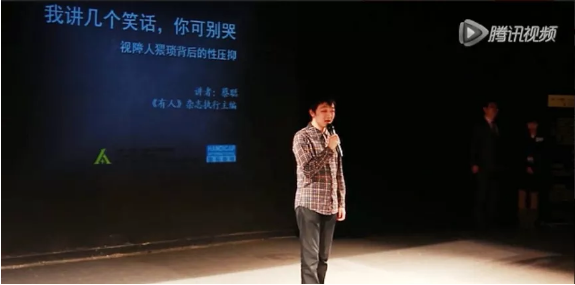
In recent years, the domestic research on [sexual and reproductive health] has made great progress in all aspects, but the topic of [disability] is still on the edge here, with few people seeing it and few people paying attention to it.
Many people with disabilities do not even have the chance to experience sex life. Cai Cong remembered that there was an organization to do advertising creative training. The trainer took out a condom and asked everyone to go back and consider whether there were any creative ideas in what.
A colleague said that at the age of 27, after listening to the word [condom] for more than ten years, it was only today that he knew for the first time what it looked like in what.
There are also blind people who took part in the “Disability and Sex” workshop held by Cai Cong and wanted to go to the store to experience adult products in person.
He took mobile navigation and asked people everywhere. He had a hard time finding the right place, but was directly kicked out by the boss.
[You are mistaken. Our things can only be seen but not touched.]
For a long time, disabled groups have always been treated as children, naturally linked with [care] and [protection] and become [asexual people].
Many anecdotes and tales are popular: disabled groups have no sexual needs, no fertility, and cannot complete sexual behavior.
But Cai Cong successfully had his own love and family. In the Spring Festival of 2015, he married his girlfriend, who was also visually impaired. In 2016, he gave birth to a healthy and lovely daughter.
He set up his daughter’s photo as WeChat avatar. In the photo, the daughter is baring her teeth and claws, and her eyes are big and bright.
In the background of the circle of friends, he and his lover were dressed in formal clothes and stood by the river with a bright smile.
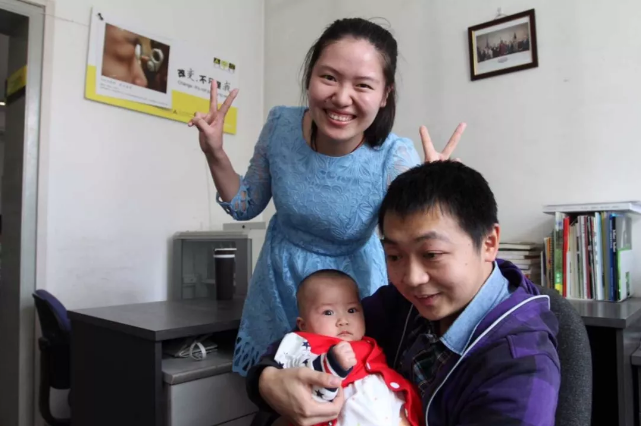
However, Cai Cong’s breakthrough alone cannot change the plight of the whole group. More disabled people, due to social prejudice, doubt themselves, lack self-confidence, and subconsciously hide their needs and desires.
Someone has to come forward.
From 2013 to 2015, Cai Cong’s [Human Culture] held three sharing sessions on [Disability and Sex] in Beijing, Guangzhou and Shanghai respectively, inviting many disabled people and relatives to express their views on the matter and share their perplexities and needs.
Among them, the theme of the sharing meeting in 2015 was [to take off, but also to take off naked].
It is not clothes that strip naked, but people’s sensitivity and rejection of [disability and sex].
Kissing is sex, hugging is sex, caressing is sex, and acceptance of imperfect bodies is also sex.
In addition to the sharing meeting, Cai Cong also held workshops on “Disability and Sex” in various places to push open the door of “Sex” with disabled groups and explore the new world.
More and more people are driven to watch movies, salons, training, research… Cai Cong encourages them to make various attempts.
Yu Jing is also one of them. She is a patient with osteogenesis imperfecta, also known as the “porcelain doll”. She is only 80cm tall, her sternum is deformed, and her whole chest bulges forward.
In 2016, she attended the [Disability and Sex] training camp and received 2,000 yuan after the activity to carry out [Disability and Sex] related activities.
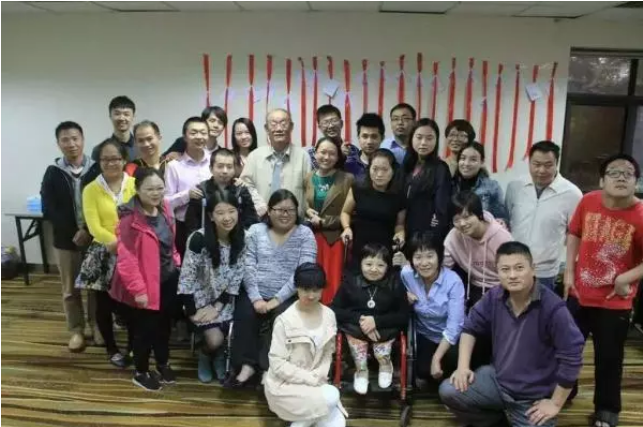
The training camp expanded Yu Jing’s understanding of [sex]-not just sex, but sexuality and [integrity].
She decided to share her harvest with more disabled people to help them get rid of the restriction of identity and face up to their rights and needs as [human].
With the money, Yu Jing organized a “multi-prism of love” workshop in Wuhan to “talk about sex and love” with disabled friends. When sharing, she told everyone:
When human sex no longer aims at reproduction and reproduction, but takes physical and mental pleasure and the promotion of intimate relationships as its highest experience, then the meaning of sex will be extended indefinitely.
Kissing is sex, hugging is sex, caressing is sex, love words are sex, and acceptance of one’s imperfect body is also sex.
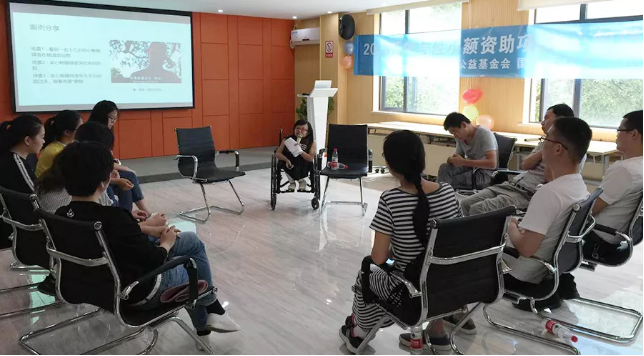
In fact, Yu Jing himself has some confusion about sex.
She wants to know whether disabled women are attractive or not. If there are boys who show some care or friendship to her, she is not sure whether it is because of the charm of women or the identity of the disabled.
She got into the condom she had set for herself and could not get rid of it, so she began to learn, share and organize activities continuously.
Yu Jing firmly believes that she is not alone in this confusion, and hopes to find a definite answer in the communication and discussion with others.
It is both redemption for others and [self-redemption].
Thanks to the efforts of the past few years, the curtain covering the disabled has gradually opened, and a group of people who were once [invisible] have begun to take to the public stage and make their own voices heard.
Their voices are being heard by more and more people. At the very least, in the field of sexual and reproductive health, [disabled people] finally have their own roles-sex education, anti-sexual assault… many topics have been discussed with the disability perspective.
Once, many people felt that disabled people were not worthy to talk about sex, love or intimate relationships, but Cai Cong always remembered a story he heard.
The little girl with mental retardation fell in love with a boy suffering from cerebral palsy in the rehabilitation institution. Her parents gave her apples, but she was reluctant to eat them. She always secretly stayed and took them to the rehabilitation institution to give them to the people she liked.
But the boy didn’t like her and turned to give the apple to another girl.
The mother was angry and distressed, and felt that her daughter had been wronged. However, a trace of joy passed through her father’s heart: the seemingly unscrupulous daughter would have quietly sprouted the seeds of love and expressed her sincere feelings.
His daughter’s simple and precious little thoughts were hidden in the apple, and he felt, “It’s really nice.”
Social culture always hides many negative assumptions and attitudes towards the sex of the disabled.
In the context of ordinary people’s lives, love and sex are natural, but for the disabled, this basic right and demand are often ignored and ignored.
This kind of indifference brings about the lack of sex education. The study “Sex-related Knowledge, Attitude and Behavior of Disabled Children and Young People in China” sponsored by UNESCO and HelpDisability International shows that disabled children and young people generally lack sex-related knowledge.
Other studies have shown that disabled adolescents face a greater risk of sexual violence than non-disabled adolescents.
In fact, disabled people, like every ordinary person, have the need for sex education and knowledge, as well as the desire for sex life, intimate relationships, love and respect.
This is their right.
